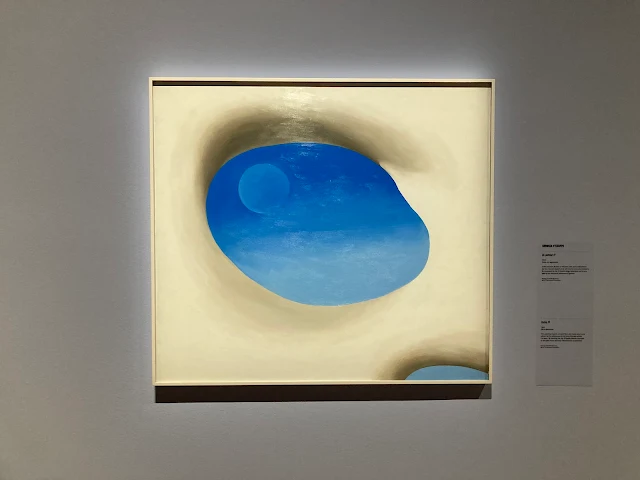 |
| Morgan's Department Store, downtown Montreal, 1955 |
Continuation is an assemblage of random and seemingly unrelated statements, mundane or philosophical, epigrammatic and often unrelated to other statements in the same poem. I doubt many readers (or Dudek’s friends) understood, or even liked, what Dudek was doing in Continuation; similarly, The Beatles song, "Revolution 9", left most listeners bewildered, the song is repetitive, disturbing, and makes no rational sense and yet, ironically, even paradoxically, it makes perfect sense as does Dudek’s Continuation. Most of The Beatles’ songs are popular music, none are as idiosyncratic and experimental as “Revolution 9”; indeed, this is a piece of music, of voices and sounds, that suggests the overwhelming banality of everyday life.
Both “Revolution 9" and Continuation seem anomalies in their creators’ bodies of work; neither bring the audience much immediate pleasure until some sense or meaning is found in the work; both are more cerebral, more intellectual, than is found in most music or poetry. “Revolution 9” has a vision of the meaningless of life, life is overwhelmingly banal, purposeless, and filled with small talk and trivialities. Remember the existentially bleak lyrics to “Eleanor Rigby”, existence has failed, there is nothing to believe in, and life is without purpose or meaning; this is a long distance from typical Beatles music. But it is also the human condition found in another Beatles' song, “A Day in the Life”:
Woke up, fell out of bed
Dragged a comb across my head
Found my way downstairs and drank a cup
And looking up, I noticed I was late
Found my coat and grabbed my hat
Made the bus in seconds flat
Found my way upstairs and had a smoke
And somebody spoke and I went into a dream
Meanwhile, Continuation is a departure, a deepening, and an extension of the form and content of Dudek's previous books, for instance Atlantis (1967); form and content are extensions of each other. Atlantis, and Dudek's other travel-centered books, are connected to place, to geography, to consecutive thinking, while Continuation is connected to mundane existence, it is a stream of consciousness that exists in the realm of thought, it is bits and pieces of existence strung together, more Mallarme than Pound, maybe some Joyce and Woolf, but Pound is still present. Both “Revolution 9” and Continuation have moved away from the narrative function and into observation and statement, to isolated thinking, to non sequitur statement rather than aesthetic artifice; there seems to be little distinction in the importance of one thought over another; they are cut-ups, experiments in process, collages of ideas. Both are the thought processes of consciousness in the darkness of a sound proof isolation chamber, speaking to itself; it is close to being theatre of the absurd.
Note: Listen to the "Ideas" programmes on CBC radio for a discussion on Number Nine, https://www.cbc.ca/listen/live-radio/1-23-ideas/clip/16012646-nine-a-number-synchronicity










.JPG)
.JPG)
.JPG)
.JPG)
.JPG)
.JPG)
.JPG)
.JPG)
.JPG)
.JPG)
.JPG)
.JPG)
.JPG)





























